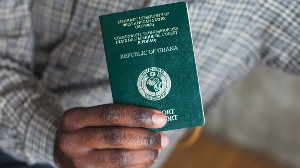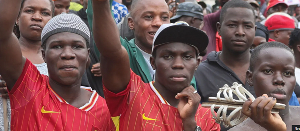Ghana’s cedi, the worst-performing African currency in the first quarter, could depreciate another 20 percent this year, as foreign-exchange reserves recede and inflation accelerates, according to JPMorgan Chase & Co.
Increased risk of outflows from the “heavily” foreign-owned local bonds, uncertainty around commodity prices and fewer signs of a real turnaround in the country’s fiscal situation add to the cedi’s weaker outlook, Giulia Pellegrini, sub-Saharan Africa economist at JPMorgan, said in a report yesterday.
The U.S. investment bank, which cut Ghana’s gross domestic product forecast for 2014, said lower growth will affect revenue generation and widen the budget deficit to 10 percent of GDP against the government’s target of 8.5 percent.
Inflation quickened to 14 percent in February, climbing for a sixth consecutive month, as the government stopped utility subsidies and the cedi weakened. It climbed from 13.8 percent in January, above the central bank’s target of 9.5 percent plus or minus 2 percentage points.
“Bank of Ghana has revised up its inflation forecasts,” Pellegrini said. “It sees inflation staying above the target band until 2015, with risks tilted to the upside on the weakening cedi and slower-than-planned fiscal consolidation.”
JPMorgan cut the economic growth forecast to 5.2 percent given the West African nation’s erratic power supply and uncertainty around commodity prices, Pellegrini said. The government’s GDP estimate for this year is 8 percent.
Ghana’s gross foreign-exchange reserves dropped to $5.3 billion in January from $5.6 billion the previous month, the central bank said March 19.
The currency of the world’s second-biggest cocoa producer slumped 20 percent against the dollar last year. It is 12 percent weaker in the first quarter, the most among 24 African currencies monitored by Bloomberg. The cedi slipped 0.1 percent to 2.6925 per dollar by 4:40 p.m. in Accra, the capital, declining for a second day.
Business News of Wednesday, 2 April 2014
Source: Bloomberg













